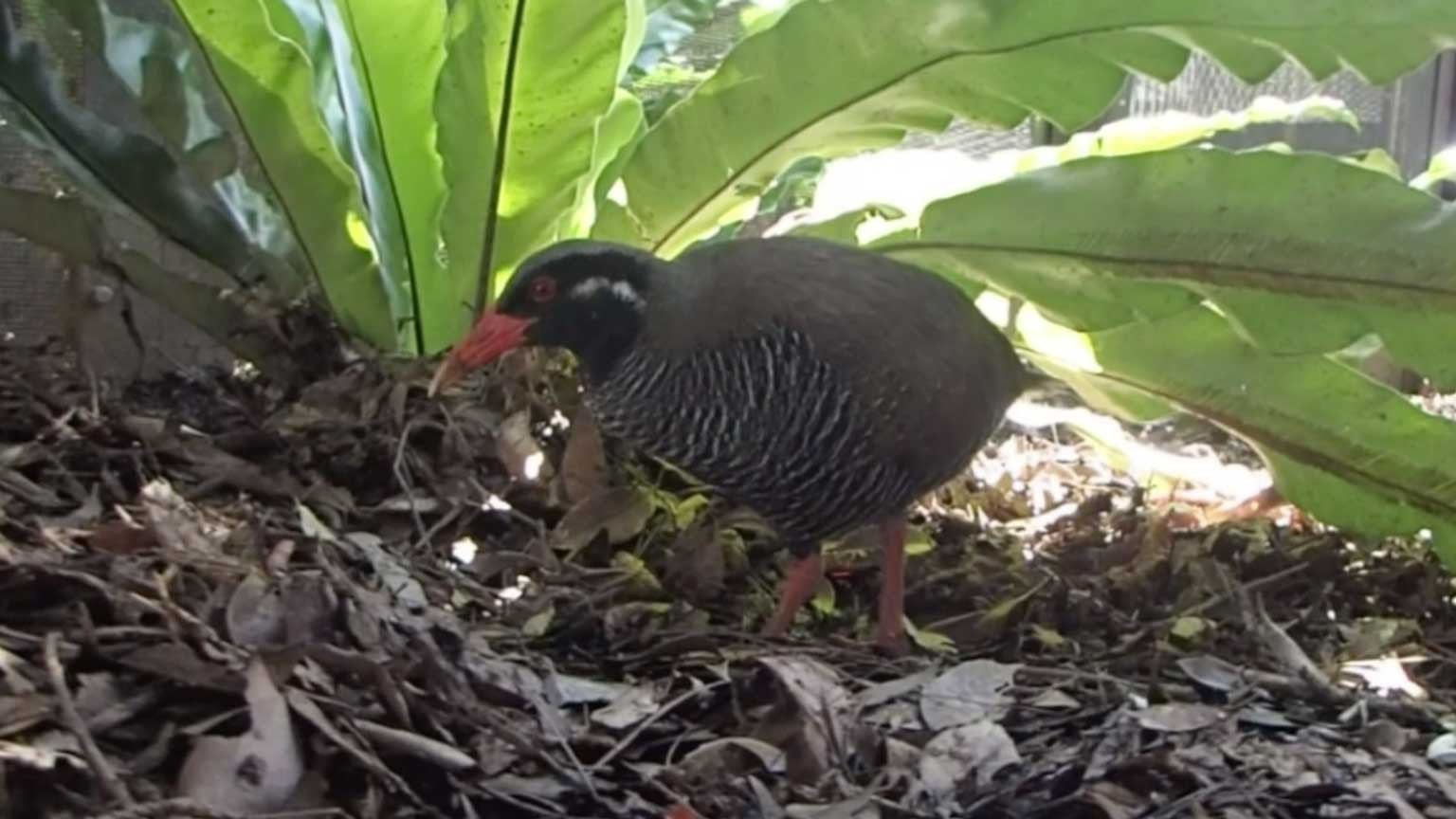Saving the golden eagle
Omoriyama Zoo in Akita City is known for its breeding program for the endangered Japanese golden eagle. In 2016, a black swan at the zoo died from avian flu.
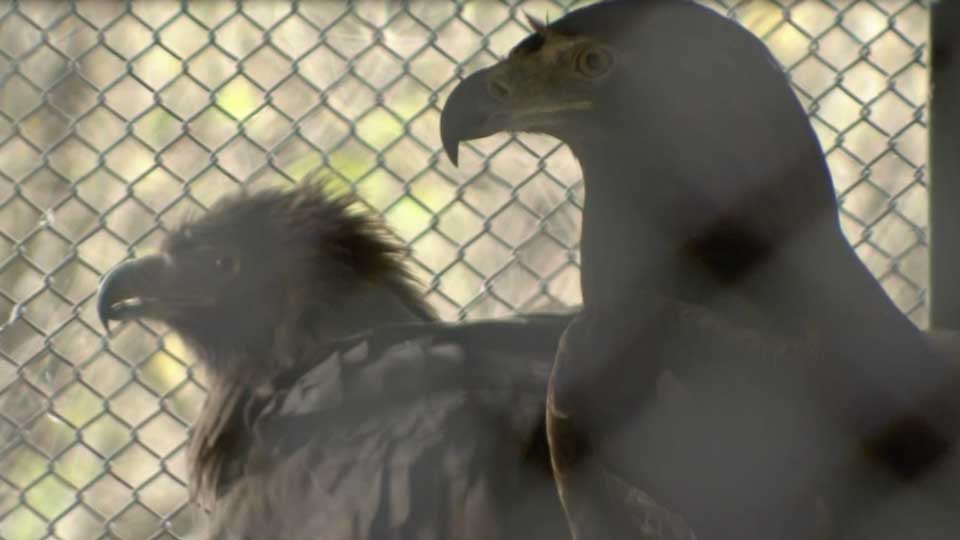
Under national quarantine guidelines, in the event of a farm outbreak, all chickens and other domestic animals get destroyed. But at zoos and other facilities, it is up to officials to decide how to manage avian flu.
Omoriyama Zoo director Komatsu Mamoru recalls it was difficult to know what to do when the swan died: Prevent the spread of infection, or protect the animals.
The zoo felt it had no choice but to destroy any swans and pelicans that might have come into contact with the infected bird.

But Komatsu did not want to touch the golden eagles. The species' population in Japan is estimated to be around 500, so any losses would have a major impact on breeding.
He consulted with Japan's environment ministry and determined the zoo would not destroy any of the eagles unless an infection was found. They were kept in isolation until the danger passed.
"All lives carry the same weight, but I believe that for species with limited numbers, we must protect them," says Komatsu. "If even one golden eagle was found to be infected, we would have had to dispose of all of them. It was a tense and anxious time."
Human medicine
A research team led by Professor Sakoda Yoshihiro of Hokkaido University examined the zoo's dead black swan.

Sakoda was struck by Komatsu's concerns. "At the time, we did not have the tools to save the infected birds proactively," he recalls. "I felt that to take into account what Komatsu and his colleagues had gone through, we, as virus researchers, needed to consider methods other than killing the birds."
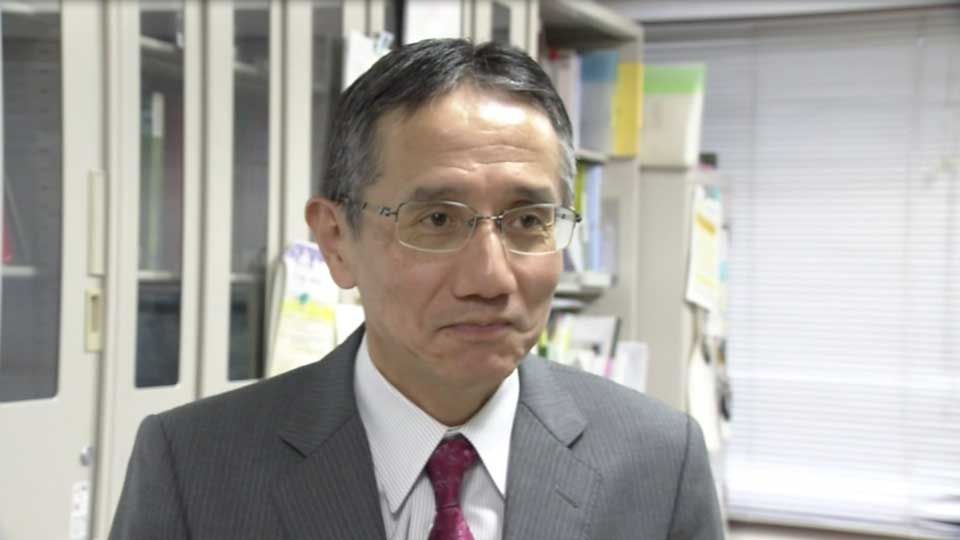
It was Sakoda's idea to trial human flu drugs that suppress the virus's growth in cells. If it worked the same way in birds, it had potential.
The team first worked with four chickens infected with a highly pathogenic avian flu virus. They administered a human anti-viral called Xofluza. All of the birds survived and the results of the experiment were published in an international journal.


The remedy has since proved to be effective elsewhere. In Hokkaido last year, 11 infected wild raptorial birds, including a protected endangered white-tailed sea eagle, were treated with the drug.
Among them, seven survived. It is the first successful treatment of avian flu in a wild bird population.
"The fact that the birds survived shows the data obtained from the chickens was reliable. This kind of step-by-step progress should lead to research on other birds," notes Sakoda.
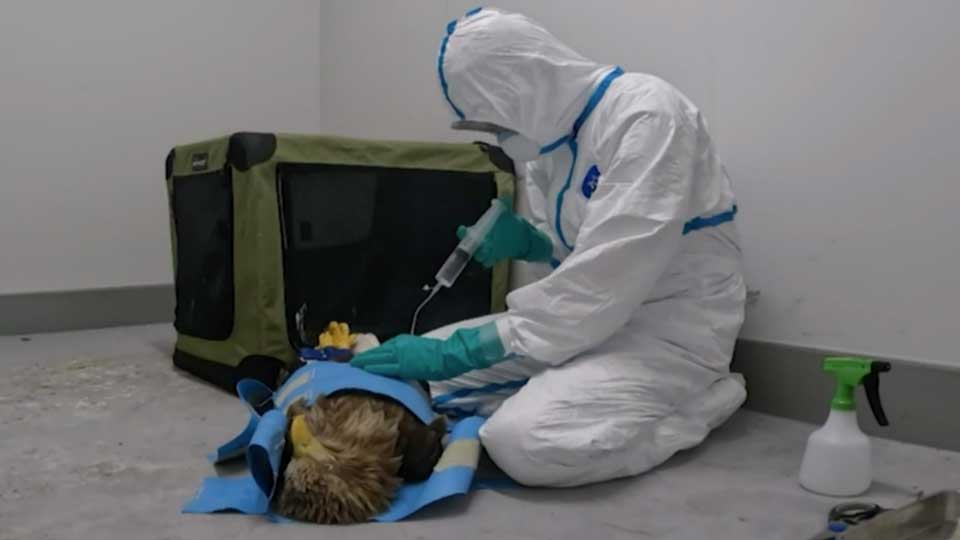
Saving an Okinawan treasure
Finding a cure for avian flu is becoming a race against time. It is a particular concern for the Okinawa rail, a flightless species that can only be found in the Yambaru Forest, in the north of the prefecture's main island. Its current population of about 1,500 makes it in danger of extinction.
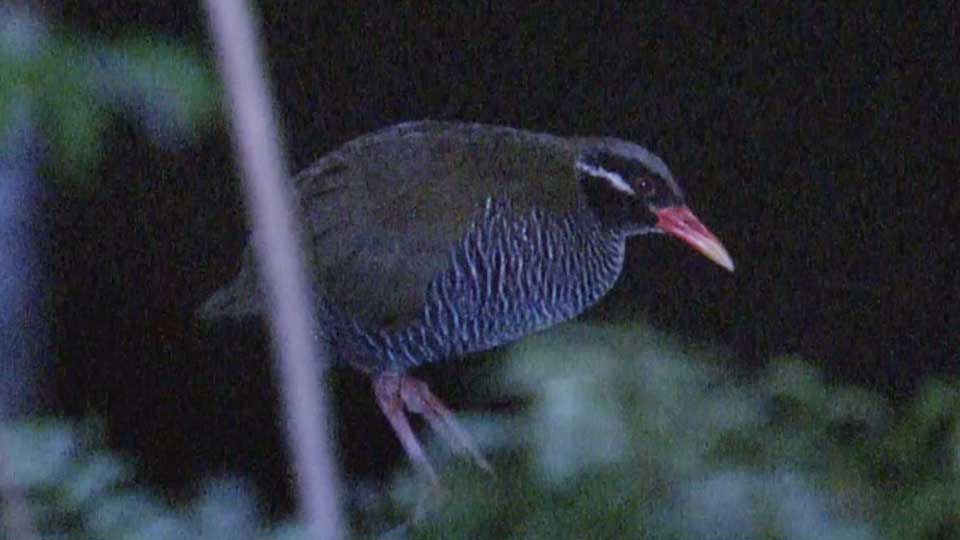
Avian flu was confirmed for the first time in Okinawa at a chicken farm last year. Local people are worried there could be another outbreak – and what that would mean for the rail.
A National Institute for Environmental Studies study has found the rail may have low resistance to avian flu. If the population gets infected, many may die.
Local veterinarian Nagamine Takashi works at an environment ministry facility that cares for the species and operates a breeding program.

If avian flu virus was introduced, it could immediately spread to 70 rail currently being raised. "We fear that the Okinawa rail here will be all wiped out. The latest research suggests that they may be as susceptible to avian flu as chickens, and we believe the birds here now could disappear in a matter of days," says Nagamine.

How the Okinawa rail responds
Work is underway to see how the rail responds to antivirals. Scientists have been medicating the birds' fish feed and monitoring their response and state of health.


At Hokkaido University, the researchers are analyzing the birds' bloodwork to determine what dosage could be effective.

So far, they have found that the same amount of medicine is less effective in the rail compared with chickens. Further study is underway to prepare a manual that outlines the best dosage and administration procedures.
With the cooperation of zoos and other institutions throughout Japan, Sakoda and his colleagues are exploring ways to treat various rare birds in the case of an outbreak. A key aim is to protect biodiversity.
"We believe that it is our responsibility to protect those species that can be saved," he explains. "I believe the use of medicines to treat rare birds will become more effective in the future as a method to reduce the damage caused by avian flu. We want to collect proper data in Japan, which will lead to the protection of rare birds around the world."

